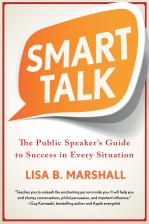5 Ways to Reduce Your Accent
Is your accent keeping you from communicating clearly? Do you want to reduce your accent and make yourself easier to understand? The Public Speaker provides 5 accent reduction tips and resources for ESL speakers.
Lisa B. Marshall
Listen
5 Ways to Reduce Your Accent
Is English your second language or possibly even your third language? Have you ever avoided a public speaking opportunity because of your accent? Is communication with native English speakers at work or in social situations a bit intimidating? .
I am not an ESL expert. But as a public speaking coach I understand the importance of speaking clearly and being understood. In 2010, researchers from the University of Chicago showed that non-native speakers with a heavy accent are harder to understand and unfortunately this causes the speaker to be perceived as less credible.

Ask yourself the following questions:
- Are you frequently asked to repeat yourself?
- Do people often blankly nod in agreement when you’re talking?
- Have you ever ben passed by for an opportunity because of your accent?
If you’ve had these experiences, then you might consider working on reducing your accent. I want to emphasize that we’re talking about accent reduction, rather than elimination. It’s nearly impossible to eliminate an accent entirely. The latest research published in Smithsonian Magazine shows that we learn language pronunciation long before we can talk. Babies start differentiating pronunciation around the age of 6 months! Your goal is simply to be understood and to communicate clearly; not to sound like another person entirely.
5 Tips to Reduce Your Accent
Here are 5 tips and resources to help you reduce your accent.
Tip #1: Work With an ESL tutor
I always say, we don’t know what we don’t know. Get help from an ESL tutor to find out what you corrections might help you the most. An expert in ESL learning can help identify your specific problem areas and give you exercises for improving pronunciation. You can often find tutors (or even classes) for ESL students that are free through local libraries, colleges, and non-profit organizations. In fact, my friend Jen is an ESL tutor and she meets a student for 2 hours every week at the library.
Tip #2: Watch YouTube
There are YouTube channels devoted to accent reduction and American English pronunciation. For example, the Rachel’s English channel offers videos on pronunciation, idioms, grammar, and everyday English. Also, you can find people like Tian Hai who has a fun idiom video series—Tian used to be an intern here at Lisa B. Marshall, but now she’s gone on to be an English trainer and author back home in Bangkok, Thailand.
Tip #3: Listen to an Accent You Want to Imitate
Another option is to record and imitate an accent you really like. For example, this could be a news anchor, a character on TV, or a classroom teacher. Listen to them as often as you can and try imitating their pronunciation. As a native speaker with a heavy Philadelphia area accent, I sometimes practice a technique where I repeat directly on top of the speaker. I usually turn on my local NPR station in the car and repeat the exact pronunciation and intonation of the speaker.
If you are new to this technique, try listening to a podcast instead because you can slow down the rate to half speed and pause wherever you need. This will help you to get the rhythm of English. English words are often connected together—two words sound like one—so practicing this technique will make your pronunciation sound less robotic. Plus it’s fun to hear how others pronounce and phrase their words.
Tip #4: Listen to an Audiobook, Record, and Compare
My next suggestion is to listen to an audiobook where the pronunciation is one that you want to imitate. The idea is to listen to a sentence, then turn off the book, and record yourself saying the same sentence. Then compare the two sentences and see if you can identify the errors in your pronunciation. If you can’t hear any difference, ask a trusted native speaker friend if they can tell you which words need more practice.
Tip #5: Use Dictionary.com
If you’re wondering how to pronounce the word “scissors” for example, search for it on Dictionary.com. It will show you the pronunciation like this; [siz-erz]. You can click on the speaker icon next to the word and a voice will read the word for you. Of course, you can also buy an electronic dictionary that includes a speaker to hear pronunciations. But Dictionary.com is a wonderful free resource.
These 5 tips and resources will help you learn correct pronunciations and other rules for everyday English. Accent modification is one of those things that takes daily practice—like learning ballet or a musical instrument. But you don’t have to spend hours upon hours on it every day. Practicing consistently for just 15 minutes a day will make a difference.

This is Lisa B. Marshall, Helping you maximize sales, manage perceptions, and enhance leadership through keynotes, workshops, books, and online courses. Passionate about communication; your success is my business. If you want even more success in your life, I invite you to read my latest book, Smart Talk and listen to my other podcast, Smart Talk: Inspiring Conversations with Exceptional People.
Globe, world languages image courtesy of Pixababy, CC0 Public Domain. Cartoon man image courtesy of Shutterstock.

